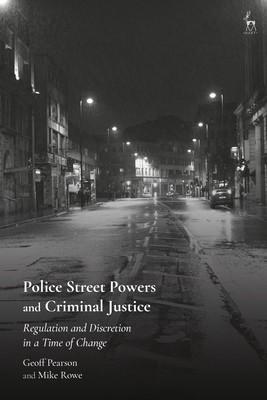
- We will send in 10–14 business days.
- Author: Geoff Pearson
- Publisher: Bloomsbury Publishing PLC
- Year: 2022
- Pages: 244
- ISBN-10: 1509944095
- ISBN-13: 9781509944095
- Format: 15.6 x 23.4 x 1.3 cm, softcover
- Language: English
- SAVE -10% with code: EXTRA
Reviews
Description
Police Street Powers and Criminal Justice analyses the utilisation, regulation and legitimacy of police powers. Drawing upon six-years of ethnographic research in two police forces in England, this book uncovers the importance of time and place, supervision and monitoring, local policies and law. Covering a period when the police were under intense scrutiny and subject to austerity measures, the authors contend that the concept of police culture does not help us understand police discretion. They argue that change is a dominant feature of policing and identify fragmented responses to law and policy reform, varying between police stations, across different policing roles, and between senior and frontline ranks.EXTRA 10 % discount with code: EXTRA
The promotion ends in 8d.17:32:59
The discount code is valid when purchasing from 10 €. Discounts do not stack.
- Author: Geoff Pearson
- Publisher: Bloomsbury Publishing PLC
- Year: 2022
- Pages: 244
- ISBN-10: 1509944095
- ISBN-13: 9781509944095
- Format: 15.6 x 23.4 x 1.3 cm, softcover
- Language: English English


Reviews